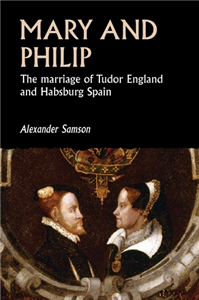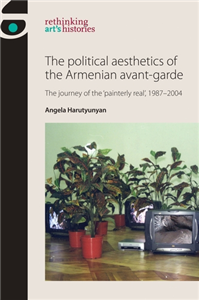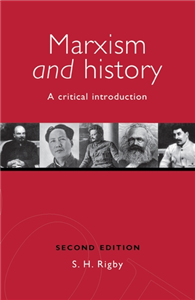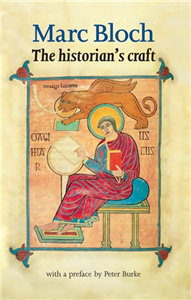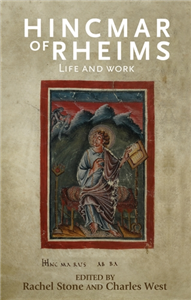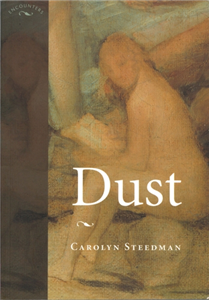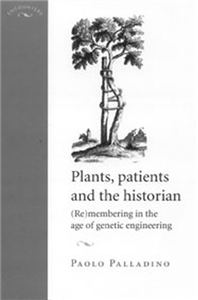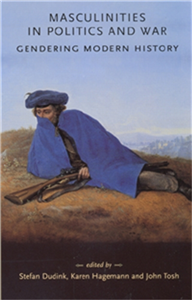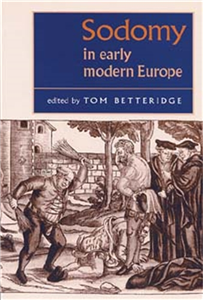Your Search Results
-
A Walk through History
A Walk Through History is a Russian publishing house specializing in children’s nonfiction. Since 2011 it has created and designed about 50 titles on various periods of history and other subjects such as mathematics, sport, plants and animals.
View Rights Portal
-
Promoted ContentLiterature & Literary StudiesMay 2023
Counterfactual Romanticism
by Damian Walford Davies
Innovatively extending counterfactual thought experiments from history and the social sciences to literary historiography, criticism and theory, Counterfactual Romanticism reveals the ways in which the shapes of Romanticism are conditioned by that which did not come to pass. Exploring various modalities of counterfactual speculation and inquiry across a range of Romantic-period authors, genres and concerns, this collection offers a radical new purchase on literary history, on the relationship between history and fiction, and on our historicist methods to date - and thus on the Romanticisms we (think we) have inherited. Counterfactual Romanticism provides a ground-breaking method of re-reading literary pasts and our own reading presents; in the process, literary production, texts and reading practices are unfossilised and defamiliarised.
-
Promoted ContentHumanities & Social SciencesFebruary 2017
Visions of empire
Patriotism, popular culture and the city, 1870–1939
by Brad Beaven
The emergence of a vibrant imperial culture in British society from the 1890s both fascinated and appalled contemporaries. It has also consistently provoked controversy among historians. This book offers a ground-breaking perspective on how imperial culture was disseminated. It identifies the important synergies that grew between a new civic culture and the wider imperial project. Beaven shows that the ebb and flow of imperial enthusiasm was shaped through a fusion of local patriotism and a broader imperial identity. Imperial culture was neither generic nor unimportant but was instead multi-layered and recast to capture the concerns of a locality. The book draws on a rich seam of primary sources from three representative English cities. These case studies are considered against an extensive analysis of seminal and current historiography. This renders the book invaluable to those interested in the fields of imperialism, social and cultural history, popular culture, historical geography and urban history.
-
 Trusted Partner
Humanities & Social SciencesOctober 2021
Trusted Partner
Humanities & Social SciencesOctober 2021Mary and Philip
The marriage of Tudor England and Habsburg Spain
by Alexander Samson
Mary I, eldest daughter of Henry VIII, was Queen of England from 1553 until her death in 1558. For much of this time she ruled alongside her husband, King Philip II of Spain, forming a co-monarchy that put England at the heart of early modern Europe. In this book, Alexander Samson presents a bold reassessment of Mary and Philip's reign, rescuing them from the neglect they have suffered at the hands of generations of historians. The co-monarchy of Mary I and Philip II put England at the heart of early modern Europe. This positive reassessment of their joint reign counters a series of parochial, misogynist and anti-Catholic assumptions, correcting the many myths that have grown up around the marriage and explaining the reasons for its persistent marginalisation in the historiography of sixteenth-century England. Using new archival discoveries and original sources, the book argues for Mary as a great Catholic queen, while fleshing out Philip's important contributions as king of England.
-
 Trusted Partner
Politics & governmentFebruary 2017
Trusted Partner
Politics & governmentFebruary 2017The political aesthetics of the Armenian avant-garde
The journey of the ‘painterly real', 1987–2004
by Series edited by Amelia Jones, Marsha Meskimmon, Angela Harutyunyan
This book addresses late-Soviet and post-Soviet art in Armenia in the context of turbulent transformations from the late 1980s to 2004. It explores the emergence of 'contemporary art' in Armenia from within and in opposition to the practices, aesthetics and institutions of Socialist Realism and National Modernism. This historical study outlines the politics (liberal democracy), aesthetics (autonomous art secured by the gesture of the individual artist), and ethics (ideals of absolute freedom and radical individualism) of contemporary art in Armenia and points towards its limitations. Through the historical investigation, a theory of post-Soviet art historiography is developed, one that is based on a dialectic of rupture and continuity in relation to the Soviet past. As the first English-language study on contemporary art in Armenia, the book is of prime interest for artists, scholars, curators and critics interested in post-Soviet art and culture and in global art historiography.
-
 Trusted Partner
Humanities & Social SciencesNovember 1998
Trusted Partner
Humanities & Social SciencesNovember 1998Marxism and History
A critical introduct
by S. H. Rigby
This critically aclaimed book, now in its second edition is firmly established as an essential guide to this recent historiographical debate. Adopted as a set book by the Open University. An indispensable guide to Marxist historiography for undergradu. . . . ;
-
 Trusted Partner
HistoriographyJuly 1992
Trusted Partner
HistoriographyJuly 1992The Historian's craft
by Marc Bloch
This work, by the co-founder of the "Annales School" deals with the uses and methods of history. It is useful for students of history, teachers of historiography and all those interested in the writings of the Annales school. ;
-
 Trusted Partner
Humanities & Social SciencesAugust 2016
Trusted Partner
Humanities & Social SciencesAugust 2016Hincmar of Rheims
Life and work
by Rachel Stone, Charles West
Archbishop Hincmar of Rheims (d. 882) is a crucial figure for all those interested in early medieval European history in general, and Carolingian history in particular. For forty years he was an advisor to kings and religious controversialist; his works are a key source for the political, religious and social history of the later ninth century, covering topics from papal politics to the abduction of women and the role of parish priests. For the first time since Jean Devisse's biography of Hincmar in the 1970s, this book offers a three-dimensional examination of a figure whose actions and writings in different fields are often studied in isolation. It brings together the latest international research across the spectrum of his varied activities, as history-writer, estate administrator, hagiographer, canonist, pastorally engaged bishop, and politically minded royal advisor. The introduction also provides the first substantial English-language survey of Hincmar's whole career.
-
 Trusted Partner
Humanities & Social SciencesMarch 2003
Trusted Partner
Humanities & Social SciencesMarch 2003The autobiography of a nation
The 1951 Festival of Britain
by Becky E. Conekin, Christopher Breward, Bill Sherman
The first full-length study on the 1951 Festival of Britain. An examination of how Britain and Britishness were portrayed in the 1951's Festival's exhibitions and events. Covers the Festival's history and historiography, its purpose, its representations of the future and the past, the role of London and the 'local', the British Empire and finally its legacy. ;
-
 Trusted Partner
Humanities & Social SciencesAugust 2020
Trusted Partner
Humanities & Social SciencesAugust 2020The TransAtlantic reconsidered
The Atlantic world in crisis
by Charlotte A. Lerg, Susanne Lachenicht, Michael Kimmage
Is the Atlantic World in a state of crisis? At a time when many political observers perceive indeed a crisis in transatlantic relations, critical evaluation of past narratives and frameworks in Transatlantic Relations and Atlantic History alike become crucial. This volume provides an academic foundation to critically assess the Atlantic World and to rethink transatlantic relations in a transnational and global perspective. The TransAtlantic reconsidered brings together leading experts such as Harvard historians Charles S. Maier and Bernard Bailyn and former ERC scientific board member Nicholas Canny. All the scholars represented in this volume have helped to shape, re-shape, and challenge the narrative(s) of the Atlantic World and can thus (re-)evaluate its conceptual basis in view of historiographical developments and contemporary challenges.
-
 Trusted Partner
Literature & Literary StudiesJune 2020
Trusted Partner
Literature & Literary StudiesJune 2020Northern memories and the English Middle Ages
by Tim William Machan, David Matthews, Anke Bernau, James Paz
-
 Trusted Partner
Trusted Partner
Dust
by Steedman
In this book, Carolyn Steedman has produced a sometimes irreverent investigation into how modern historiography has developed. Writing about the practice and writing of history, she considers the immutable, stubborn set of beliefs about the material world, past and present, inherited from the 19th century, with which modern history writing attempts to grapple. Drawing on over five years worth of her own published and unpublished writing, the author has produced a sustained argument about the way in which history writing belongs to the currents of thought shaping the modern world.
-
 Trusted Partner
Literature & Literary StudiesMarch 1999
Trusted Partner
Literature & Literary StudiesMarch 1999Sejanus, His Fall
by Ben Jonson
by Philip Ayres
This edition of Jonson's great Roman tragedy is more intensively researched than any that has previously appeared. The text is based on extensive collation of the 1605 and 1616 versions and takes the earlier version as "copy-text." The introduction offers a radically new assessment of Jonson's "historiography" and his treatment of sources. It provides an explanation for the charge of treason leveled at Jonson over Sejanus and for which he had to answer to the Privy Council. Explanatory notes to the text provide much new information to facilitate a properly informed reading of the play. ;
-
 Trusted Partner
Humanities & Social SciencesMay 2001
Trusted Partner
Humanities & Social SciencesMay 2001Cromwell's major-generals
Godly government during the English Revolution
by Christopher Durston, Peter Lake, Anthony Milton, Jason Peacey, Alexandra Gajda
The first full-scale study of the rule of Cromwell's major-generals over England and Wales during 1655 and 1656. This is a period which had a dramatic impact upon contemporaries and has remained a powerful symbol of military rule down to the present day. Contains chapters on the three most important aspects of the major-generals' work: the collection of the decimation tax; the attempt to improve the security of the regime; and the struggle to build the 'Godly Nation'. Concludes with an investigation of the 1656 election and the major-generals subsequent unexpected fall from power. Fills a major gap in the historiography of Cromwellian England. ;
-
 Trusted Partner
Humanities & Social SciencesJanuary 2003
Trusted Partner
Humanities & Social SciencesJanuary 2003Plants, patients and the historian
(Re)membering in the age of genetic engineering
by Paolo Palladino, Bertrand Taithe, Roger Cooter, Carolyn Steedman
God is dead. Thanks to the decoding of the human genome, the 'word' has been rendered into 'flesh' and 'we can all be proud of our species as it closes in on this summit of self-knowledge'. Yet, the very architects of its decoding have also warned that 't. Provides a history of genetics in Britain from its inception as a science in the early years of the twentieth century. Seeks to examine the roots of these two paradoxical assessments of the decoding of the human genome. Explores the intersection of historiography, critical theory, and science and technology studies, aiming to reaffirm the inescapable presence and necessity of the 'Absolute. ;
-
 Trusted Partner
Literature & Literary StudiesFebruary 2024
Trusted Partner
Literature & Literary StudiesFebruary 2024Literatures of the Hundred Years War
by Daniel Davies, R. D. Perry
-
 Trusted Partner
Humanities & Social SciencesApril 2004
Trusted Partner
Humanities & Social SciencesApril 2004Masculinities in politics and war
Gendering modern history
by Stefan Dudink, Pamela Sharpe, Karen Hagemann, Penny Summerfield, John Tosh, Lynn Abrams, Cordelia Beattie
Politics and war are crucial to the history of masculinity, yet have been neglected in the emergent historiography of masculinity. This book opens up new avenues in gender history by mapping masculinity's part in making revolution, waging war, building nations, and constructing welfare states. Preceded by extensive historical and theoretical introductions, the volume is clearly divided into sections on revolution, nation, politics and subjectivity. An innovative collection with contributions from an international group of eminent historians who are recognised experts in their fields, with essays on Europe, the United States, Latin America, Australia, Africa and Asia. Written in a highly accessible style, targeted at both students, professional historians and the interested general reader. ;
-
 Trusted Partner
Humanities & Social SciencesJune 2011
Trusted Partner
Humanities & Social SciencesJune 2011Britain and Europe since 1945
Historiographical perspectives on integration
by Oliver Daddow
This important book offers a refreshing and challenging perspective on the nature of history by analysing the character, role, functioning and wider uses of historiography. Taking British policies towards European integration since the Second World War as a case study, the author demonstrates how its interpretation and reportage over time is subject to changing trends. Seeking to explain these trends in terms of the different conceptions of the past which are maintained by different schools of writing, it forces us to confront the fundamental difficulties we encounter in undertaking studies in history. It draws attention to the impact on historical interpretation of changing times, political discourse, the opening of archives, and of subjects being brought to the fore by professional historians. ;
-
 Trusted Partner
Humanities & Social SciencesAugust 2002
Trusted Partner
Humanities & Social SciencesAugust 2002Sodomy in early modern Europe
by Joseph Bergin, Tom Betteridge, Penny Roberts, Bill Naphy
This fascinating collection of essays reflects closely the main areas of debate within gay historiography. For the last twenty years scholars have argued over the nature of early modern sodomy, responding in a number of different and contradictory ways. Questions addressed in the book include: was early modern sodomy the same as modern homosexuality? Were there homosexuals in early modern Europe? Did men who had sex with each other in this period regard their behaviour as determining their identity? What was the relationship between the grave sin of sodomy and the homoerotic images that fill Renaissance culture?. The volume includes essays on sodomy in English Protestant history writing, in Calvin's Geneva, in early modern Venice and the trial of sodomy in Germany. ;
-
 Trusted Partner
Literature & Literary StudiesAugust 2022
Trusted Partner
Literature & Literary StudiesAugust 2022Our real life in tombs
by Angela Blumberg, Andrew Smith, Anna Barton
-
 Trusted Partner
Humanities & Social SciencesSeptember 2007
Trusted Partner
Humanities & Social SciencesSeptember 2007Historiography
by Roger Spalding, Christopher Parker, Rebecca Mortimer






